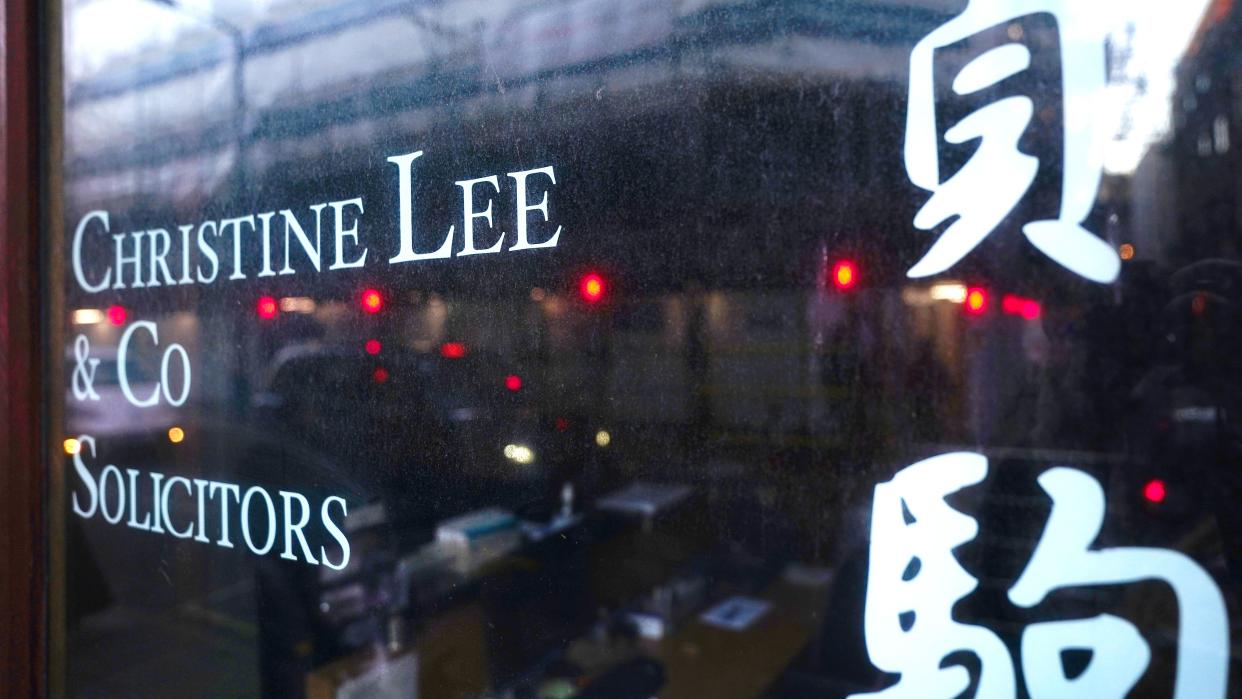Lawyer accused of being Chinese spy used as ‘political football’, tribunal told

A lawyer accused of working for the Chinese government by MI5 has told a tribunal that she was used as a “political football” to distract from the Partygate scandal.
Christine Lee said she believed the interference alert issued about her by the Security Service was for a “political purpose, namely to serve the interests of the Conservative party”, and that she was the victim of discrimination “on the grounds of my race”.
The Security Service warned MPs in January 2022 that it believed Lee had engaged in “political interference activities” for a branch of the Chinese Communist Party (CCP), a day after then-Prime Minister Boris Johnson apologised to MPs over the Partygate scandal.
Ms Lee is now taking legal action against the Security Service and “categorically” denies the allegations against her, with her lawyers telling the Investigatory Powers Tribunal (IPT) in London that issuing the notice was unlawful.
The Security Service is contesting the claim, arguing that its decision was “rational and lawful” and that Ms Lee was not “entitled to keep quiet” the nature of her activities.
In court documents, Ms Lee said: “I believe that the respondent (the Security Service) and possibly the Secretary of State for the Home Department who approved what the respondent did in issuing the notice acted for political purpose, namely to serve the interests of the Conservative party.
“I believe that the respondent has treated my case differently to that of those Russian nationals affiliated with the Russian state who funded Conservative MPs to lobby the Conservative Government.”
She continued: “I also believe that the timing of the issue of the notice suggests that the respondent acted to deflect the criticism levelled against the Conservative Government for supporting Mr Owen Patterson for accepting funds to lobby the Government and to diffuse the complaints levelled at the Prime Minister for allegations of Partygate scandals.”
The alert came after Ms Lee donated £500,000 to former Brent North MP Barry Gardiner, who was chairman of the now-disbanded Chinese In Britain All-Party Parliamentary Group on which she sat.
The Security Service said the money was provided by foreign nationals and “undertaken in covert co-ordination” with the United Front Work Department (UFWD), a branch of the CCP.
The IPT heard on Monday that Mr Gardiner, the Labour candidate in the Brent West constituency, later told Ms Lee that it had also been suggested to him that the alert had been issued to “detract attention” from Mr Johnson’s apology.
Lawyers for Ms Lee, who left the tribunal in tears on Tuesday, said that the alert was incorrect and “should not have been issued”.
Ms Lee, who set up an immigration consultancy firm in 1994, said she lobbied MPs on behalf of British Chinese nationals and to build trade links but that any donations to MPs were recorded and passed parliamentary vetting requirements.
Her son, Daniel Wilkes, is also taking legal action after losing his job with Mr Gardiner following the alert.
In written arguments, Victoria Wakefield KC, for the Security Service, said the decision to issue the alert was “open” to it and that Ms Lee’s arguments were “untenable”.
She said: “Ms Lee’s race and/or nationality played no part in the decision to issue an interference alert.
“As noted, the decision was made on grounds of national security in order to counter the threat posed by Ms Lee’s links to the CCP and the UFWD.
“A person in an analogous situation to her, i.e. who posed the same threat to national security, would be treated in the same way.”
Ms Wakefield continued that the alert was issued “to protect national security” from “the activities of agents of foreign powers and from actions intended to undermine parliamentary democracy by political means”, adding that the alert was necessary to “counter that threat”.
The hearing before Lord Justice Singh, Lord Boyd and Judge Rupert Jones is expected to conclude on Tuesday, with a judgment expected in writing at a later date.

 Yahoo News
Yahoo News 
